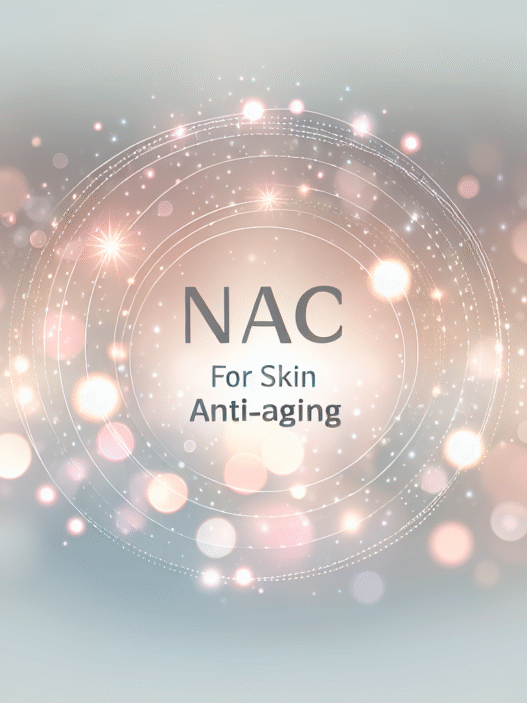Understanding Skin Aging
Understanding the factors that contribute to skin aging is crucial for developing effective anti-aging treatments and strategies. This section examines both intrinsic and extrinsic factors affecting skin health as well as the main theories surrounding skin aging.
Intrinsic and Extrinsic Factors
Skin aging results from a combination of intrinsic and extrinsic factors. Intrinsic factors are natural, biological processes that occur over time, leading to changes in skin structure and function. These include the following:
- Genetics: Individual genetic makeup influences how skin ages.
- Hormonal changes: Fluctuations in hormones can impact skin elasticity and moisture.
- Time: The natural aging process leads to a decrease in collagen production and fat loss in the skin.
Extrinsic factors, on the other hand, are environmental influences that can accelerate the aging process. Key extrinsic factors include:
- Ultraviolet Radiation: UV exposure can damage skin cells and contribute to photoaging.
- Smoking: Tobacco smoke contains chemicals that contribute to oxidative stress and skin issues.
- Pollution: Environmental toxins can lead to inflammation and skin degradation.
- Wind Exposure: Harsh weather conditions can dehydrate the skin, leading to enhanced aging.
The interplay between these factors plays a significant role in how skin ages and can inform selection of n-acetyl cysteine for skin treatments aimed at mitigating these effects.
Theories of Skin Aging
There are several prominent theories that explain the mechanisms behind skin aging:
-
Free Radicals and Oxidative Stress Theory: This theory suggests that the accumulation of free radicals—unstable molecules that damage cells—over time leads to aging. Antioxidants, such as those found in n-acetyl cysteine (NAC), could potentially counteract these effects.
-
Inflammation Theory: Chronic inflammation is believed to contribute to tissue damage and aging. Reducing inflammation may help maintain healthier skin, which can be addressed by incorporating NAC’s anti-inflammatory properties.
-
Photoaging Theory: This theory focuses on damage from UV radiation, resulting in visible signs of aging such as wrinkles and discoloration. Protective measures, including topical antioxidants and sunscreens, can combat photoaging and support skin health.
-
Nonenzymatic Glycosyl Chemistry Theory: This theory indicates that sugar molecules can bind to proteins (glycation), leading to loss of elasticity and appearance of wrinkles. Strategies that inhibit glycation and promote collagen production are essential for effective anti-aging regimens.
By exploring these theories, it becomes clear how substances like NAC can target multiple pathways in the skin aging process. Incorporating NAC in nac anti-aging skin care formulations may prove beneficial in combatting various signs of aging effectively.
N-Acetyl Cysteine (NAC) Overview
N-Acetyl Cysteine (NAC) is a powerful compound that holds promise in dermatology and anti-aging skin care. Its multifaceted benefits extend beyond mere skin health, significantly impacting various dermatologic conditions.
Efficacy in Dermatologic Conditions
NAC has been shown to be effective in treating several dermatological issues, making it a versatile ingredient in skin care formulations. Some conditions that NAC can help with include:
- Excoriation disorder
- Onychophagia disorder
- Trichotillomania
- Acne vulgaris
- Type I lamellar ichthyosis
- Bullous morphea
- Systemic sclerosis
- Toxic epidermal necrolysis
- Atopic dermatitis
- Xeroderma pigmentosum
- Pseudoporphyria
Clinical studies have indicated that NAC treatment significantly reduces symptoms associated with skin-picking disorders, particularly in patients with Prader-Willi Syndrome (PubMed Central). Furthermore, it has shown effectiveness in promoting wound healing through enhanced angiogenesis, leading to improved skin repair outcomes compared to control groups.
| Dermatologic Condition | NAC Efficacy |
|---|---|
| Excoriation Disorder | Significant symptom reduction |
| Acne Vulgaris | Improvement noted |
| Toxic Epidermal Necrolysis | Complete resolution of lesions reported |
Skin Benefits of NAC
The skin benefits associated with NAC are not limited to treating specific disorders; it also supports overall skin health and aging. NAC acts as a potent antioxidant, helping to combat oxidative stress that contributes to skin aging. Additionally, it can enhance the skin’s repair and protective mechanisms, making it effective for various skin concerns.
NAC’s synergistic effects with other skincare ingredients enhance its efficacy, making it a valuable addition to anti-aging formulations. Clinical reviews suggest its application in improving skin hydration, elasticity, and overall texture. For more details on how NAC supports skin health, visit our article on n-acetyl cysteine for skin.
| Skin Benefit | Mechanism |
|---|---|
| Antioxidant Protection | Neutralizes free radicals |
| Improved Wound Healing | Promotes angiogenesis |
| Enhanced Moisture Retention | Supports skin barrier function |
The potential of NAC in enhancing skin health and its anti-aging effects illustrate its significance in modern skincare. For individuals interested in longevity and optimal skin functioning, incorporating NAC might be a beneficial strategy. For further exploration, learn about nac for anti-aging and nac supplement benefits.
Clinical Studies on NAC
N-Acetyl Cysteine (NAC) has garnered attention for its potential in treating various skin disorders and aiding wound healing. As research progresses, findings suggest that NAC may offer significant benefits for skin health.
Treatment for Skin Disorders
Clinical studies indicate that NAC has shown promising results in treating severe skin conditions. One notable case involves its use in patients with toxic epidermal necrolysis (TEN), where individuals reported complete resolution of skin lesions and mucosal erosions after NAC treatment, even when other therapies had failed (PubMed Central). This underscores NAC’s potential as a therapeutic agent for drastic skin conditions.
| Condition | Treatment Outcome |
|---|---|
| Toxic Epidermal Necrolysis (TEN) | Complete resolution of lesions |
| Other Skin Disorders | Improved outcomes in patient recovery |
Wound Healing and Fibrosis
NAC has been shown to significantly enhance the rates of wound healing and fibrosis in studies involving animal models. Research reveals that NAC contributes to increased angiogenesis, which is the formation of new blood vessels. This process is crucial for effective wound healing.
In one particular study, the group treated with NAC exhibited higher rates of healing compared to control groups. The evidence suggests that NAC not only aids in rapid recovery but also has important implications for those concerned about skin damage due to aging or other factors.
| Study Focus | Key Findings |
|---|---|
| Wound Healing | Improved healing rates with NAC treatment |
| Angiogenesis | Increased blood vessel formation |
| Fibrosis | Enhanced recovery and tissue regeneration |
The body of research surrounding NAC supports its role in skin health and recovery. For further exploration of NAC’s benefits, including its anti-aging properties, check out our article on n-acetyl cysteine benefits. As the research expands, NAC is becoming a vital component in discussions about effective skincare and longevity strategies.
NAC for Anti-aging
N-Acetyl Cysteine (NAC) has gained attention within the skincare community for its potential anti-aging benefits. It plays a significant role in skin protection and healing processes, making it a valuable component in effective anti-aging products.
Role in Skin Protection
NAC is renowned for supporting the body’s natural antioxidant systems, crucial in protecting skin cells from oxidative damage caused by environmental stressors such as UV exposure and pollution. By linking its action to the production of glutathione, a powerful antioxidant, NAC helps reinforce and strengthen the skin’s inherent protective abilities (City Skin Clinic).
| Function | Benefit of NAC |
|---|---|
| Antioxidant Support | Protects against oxidative stress from UV and pollution |
| Skin Barrier Enhancement | Strengthens the skin’s natural defenses and functions |
| Moisture Retention | Helps maintain skin hydration and elasticity |
Incorporating NAC in skincare formulations can lead to improved skin resilience and a more youthful appearance.
Effects on Skin Repair
NAC is also effective in promoting skin repair. Its role in boosting glutathione production accelerates cellular repair processes, which is particularly beneficial for those concerned about signs of aging. Formulations such as the Repair Serum NAC Y²™ and Repair Day Cream NAC Y²™ by 111SKIN illustrate the impact of NAC on skin health. These products not only provide hydration but also help plump the skin, reduce redness, and improve overall appearance (111Skin).
| Product | Key Benefit |
|---|---|
| Repair Serum NAC Y²™ | Smooths skin, reduces redness, accelerates cellular repair |
| Repair Day Cream NAC Y²™ | Strengthens skin barrier, provides hydration, maintains a glowing complexion |
The synergy of NAC with other active ingredients like Argireline and Caffeine enhances its anti-aging properties, making it a sought-after ingredient in the fight against skin aging. For more information on the benefits of NAC in skincare, visit our detailed page on n-acetyl cysteine for skin.
In summary, NAC not only offers protective benefits for the skin but also supports the repair mechanisms critical to maintaining a youthful appearance. Its incorporation into daily skincare routines can significantly contribute to long-term skin health and anti-aging efforts. To explore more about NAC’s effects on longevity and wellness, check our articles on nac for longevity and nac for skin rejuvenation.
Safety and Considerations
When considering NAC as part of an anti-aging skin care regimen, it is important to be aware of its potential interactions with medications, as well as any associated side effects and risks.
Potential Interactions with Medications
N-acetyl cysteine (NAC) may interact with various medications, potentially impacting their effectiveness or leading to adverse effects. Some notable interactions include:
| Medication Type | Interaction Details |
|---|---|
| Activated Charcoal | NAC may be less effective when used concurrently with activated charcoal, as the charcoal can absorb NAC. |
| Chloroquine | The effectiveness of chloroquine may be influenced by NAC, but further studies are needed to clarify this. |
| Blood Pressure Medications | NAC may have effects that impact blood pressure management, warranting caution when used alongside these drugs. |
| Anticoagulants | NAC may slow blood clotting, increasing the risk of bleeding when taken with anticoagulant medications. |
For individuals taking any of the above medications, consulting with a healthcare provider before starting NAC is crucial. More details on potential interactions can be found on WebMD.
Side Effects and Risks
While NAC is generally considered safe for most individuals, there are potential side effects that users should be aware of. Common side effects may include the following:
| Side Effect | Description |
|---|---|
| Nausea | Some individuals may experience nausea after taking NAC. |
| Diarrhea | Gastrointestinal discomfort, including diarrhea, can occur with NAC usage. |
| Abdominal Pain | Some users report abdominal pain or discomfort. |
| Allergic Reactions | Rarely, individuals may experience allergic reactions such as hives or difficulty breathing. |
In addition to these common side effects, more serious risks can arise, particularly in individuals with pre-existing conditions or those taking certain medications. It’s advisable to consult with a healthcare professional regarding n-acetyl cysteine dosage tailored to individual health needs.
For people considering NAC for its skin benefits, an overview of its effectiveness can be found in our article on n-acetyl cysteine for skin. As with any supplement, it is important to fully understand both the benefits and risks associated with its use, especially related to specific health conditions or medications.
NAC in Skincare Formulations
N-Acetylcysteine (NAC) has garnered attention in the skincare realm due to its potential skin benefits and its ability to enhance the effectiveness of other skincare products. This section outlines the findings from skin improvement studies and discusses how NAC can enhance skincare formulations.
Skin Improvement Studies
Recent studies highlight the skin-enhancing properties of NAC. It has been shown to improve skin texture and hydration, leading to a smoother and more even complexion (City Skin Clinic). In clinical trials, NAC demonstrated significant improvement in skin picking severity among patients with excoriation disorder, indicating its therapeutic potential in dermatologic conditions (PubMed Central).
| Study Type | Findings |
|---|---|
| Randomized Trial | NAC improved skin picking severity in excoriation disorder patients. |
| Observational Study | NAC enhanced skin hydration and texture in diverse skin types. |
Enhancing Skincare Effectiveness
NAC not only offers its own benefits but also plays a crucial role in enhancing the performance of other skincare ingredients. Its properties help in providing better hydration and may improve the absorption of topical treatments, thereby maximizing their effectiveness. By incorporating NAC into skincare formulations, manufacturers can create products that work synergistically with other active ingredients, promoting overall skin health (City Skin Clinic).
In addition to providing moisture, NAC’s antioxidant capabilities help shield the skin from environmental stressors and oxidative damage, further solidifying its status in the anti-aging skincare market. For individuals looking for nac anti-aging skin care options, products formulated with NAC may offer compounded benefits for skin health.
The ongoing interest in NAC’s application in skincare suggests that this compound will continue to be a valuable ingredient, particularly for those focused on anti-aging and skin rejuvenation. To learn more about its benefits, readers can explore n-acetyl cysteine benefits and n-acetyl cysteine for skin.





















